9 Necessary Survival Skills For Kids: It’s Never Too Young to Learn
When most people think about prepping, they think about adults and their needs. However, don’t forget about the little ones! Kids need to be prepared as well — after all, they are our future. Teaching them the necessary survival skills at an early age will help them thrive in any situation, and even help as a family member to do their part in pulling off the family preparation plan. So what are some of the most important survival skills for kids? Check out our list below!
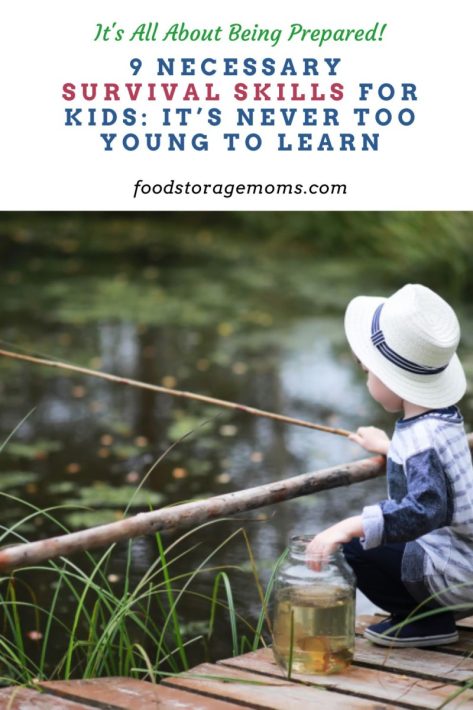
What are Survival Skills?
Most people think of survival skills as something you only need in a “survival situation.” But the truth is, we use survival skills every day. From finding food and shelter to making fires and building shelters, survival skills are essential for everyday life.
Of course, some survival skills are more essential than others. For example, being able to build a fire is essential for survival in cold weather. However, in a hot climate, being able to find food and water are more important.
The best way to learn survival skills is to take a Survival Skills class. In these classes, you will learn how to build fires, find food and water, build shelters, and more critical skills like learning how to identify edible plants and how to purify water. Taking a Survival Skills Class is the best way to make sure you are prepared for any situation. As a starting point, every child should have their own flashlight. Solar Flashlights or Battery Flashlights
9 Survival Skills For Kids
Part of surviving any situation is making sure that everyone in your family has the skills they need. Whether they are camping or facing a real emergency, you want your kids to learn necessary survival skills.
While babies and toddlers won’t be much help in an emergency, you can begin training your little preppers as early as 4 or 5. Here are 9 survival skills for your kids to learn as a way to help get them started!
Situational Awareness
Kids in general aren’t really aware of their surroundings. However, as a parent, you can start teaching this skill early! Start by pointing out landmarks close to home and creating family meeting places.
Then, point out landmarks on the way to school, when visiting an amusement park, and when hiking in the wilderness. By pointing out landmarks, your child will subconsciously become more aware of their surroundings.
Knowing their surroundings will help them in many situations, whether they are lost in the wilderness or in an urban area.
An important part of awareness is learning directions. That should include learning how to read and follow a map, and also how to use a compass. Having a phone can make getting from point A to point B pretty easy. We won’t always have our phones, and we’ll find they don’t always work, particularly in the wild. Plan to take a map when outdoors, and also have a compass in your gear.
How to Keep Warm Without a Fire
Kids probably aren’t going to have the supplies to make a fire if they are found in a survival situation without an adult. However, there are ways to stay warm without needing to build a fire.
Teach them how to keep warm by making a “scarecrow suit.” A scarecrow suit is a suit made from clothing and leaves that helps insulate the body. To make a scarecrow suit, simply stuff leaves into a coat or jacket. Then, put the coat on top of other clothing layers.
Another way to keep warm is by huddling together with other people. Body heat is one of the best ways to stay warm in a survival situation.
Another critical them for them to understand is how important it is to stay dry, if possible. When we are outdoors, and particularly if it is cold, getting wet and not having a way to dry out can be life-threatening. That’s another reason for the kids to learn how to make a shelter.
How to Find Water
Regardless of age, the general rule is that you can only survive about 3-days without water. That could be even shorter if it’s hot. In order to survive, kids should know the best way to find clean drinking water. Here are some tips to teach them:
- Rainwater collected in leaves, rock depressions, or other containers is usually the safest bet.
- Water naturally runs downhill, so look downhill from where you are for water to gather there.
- Tell them to look for clean, small pools of clean water, and animal tracks to know where local wildlife is sourcing their water.
Kids need to understand that water found in the wild isn’t safe like most household water sources. They should learn how to make water safer to drink, like boiling it, using a water filter, putting a small amount of non-scented bleach in the water, or using halazone pills that are designed to kill bacteria.
How to Find Food
If your child is ever in a survival situation, they will need to know how to find food besides the water we’ve discussed. One way to find food is by looking for edible plants.
There are many edible plants in the wild. However, some are more toxic than others. Teach your child how to identify edible plants by taking a Survival Skills class or reading a book on finding food in the wilderness or foraging.
Another way to find food is by hunting or trapping small animals. Trapping can be done with a simple snare trap or by using a net. Hunting is a good option if you feel the child is old enough to handle things. Bows and arrows or small arms use can be taught at a fairly young age. Be sure to check local regulations. Taking necessary classes can be a fun and informative family activity.
Keep Calm & Stay Put
One of the most important survival skills for kids is to stay calm in a crisis. If they are lost, the best thing they can do is possibly stay in one place, or at least close to where those looking for them expect to find them.
If they wander a long distance, it will be much harder for you or rescuers to find them. Teach your child to use their whistle if they get lost, and have them use a mirror to reflect the sun during the day or a light source at night to draw attention. The safest option may very well be to stay in one place until someone comes to find them.
In a survival situation, the best thing your child can do is to stay calm and wait for help.
Make or Find Shelter
Keeping out of the rain, snow or other elements is important for survival. A shelter isn’t about being comfortable, it’s about staying alive.
Since they probably won’t have supplies at their disposal, teach your kids how to use their natural surroundings.
They can use sticks to make lean-tos and tree branches as a temporary shelter from the rain and sun. You can also teach them how to make a snow tent.
In a pinch, a garbage bag can be used as a rain poncho or to collect water.
Signal for Help
If your child is ever in a survival situation, it’s important that they know how to signal for help. As mentioned above, teach them to use light reflecting off of a mirror or shiny object to signal for help during the day.
At night, they can use a flashlight or fire to signal for help. You can also teach them how to make a smoke signal.
In remote areas, it’s best to stay put and wait for rescue. If your child must move, tell them to leave a trail of markers so you can find them.
Wildlife Encounters
Does your child know what to do if they encounter a mountain lion, a bear, or a pack of coyotes? In a survival situation, it’s important that they know how to deal with wildlife encounters.
Teach them to make noise and look big if they encounter a bear. If they encounter a pack of coyotes, they should climb a tree or find a large object to put between them and the coyotes.
The best way to avoid a wildlife encounter is to make noise and stay aware of their surroundings.
How to Fish
Fishing is a great way to get food in a survival situation. But, it’s not as easy as it looks.
There are many different ways to fish, and the best method will depend on the type of fish you’re trying to catch. You can use a spear, a net, or a line and hook. In fact, this is one of the many reasons You Should Take Your Kids Fishing.
More Survival Skills for Kids
- 15 Life Skills Your Kids Need
- Away from Home Emergency Plan For Kids
- How to Raise Confident Self-Reliant Kids
- How to Get Kids Involved in Prepping for a Disaster
Is there a good age to start training your kids needed survival skills?
As parents, we know that our children learn at different ages, speed, and maturity levels. There isn’t any one age that workds for everyone child, so be willing to try different things and see how your child grasps concepts. Sometimes they learn best when it’s made a game, and they have fun during the learning process.
The key is to be patient, not expect too much too soon, and help them to understand why things are done and not just how. The why part helps them to internalize the skill and better remember it when needed.
Final Word
Survival skills for kids are important. But, they’re also a lot of fun to learn.
Enroll your child in a Survival Skills class or buy them a book on the subject. With a little bit of knowledge, they’ll be prepared for anything.
What survival skills have you taught your kids? Share them in the comments below! May God Bless this world, Linda
Copyright Images: Child Fishing AdobeStock_509081993 by alexkich

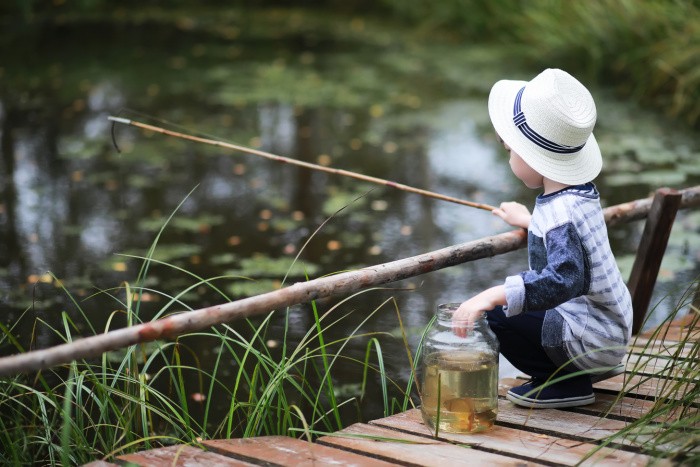

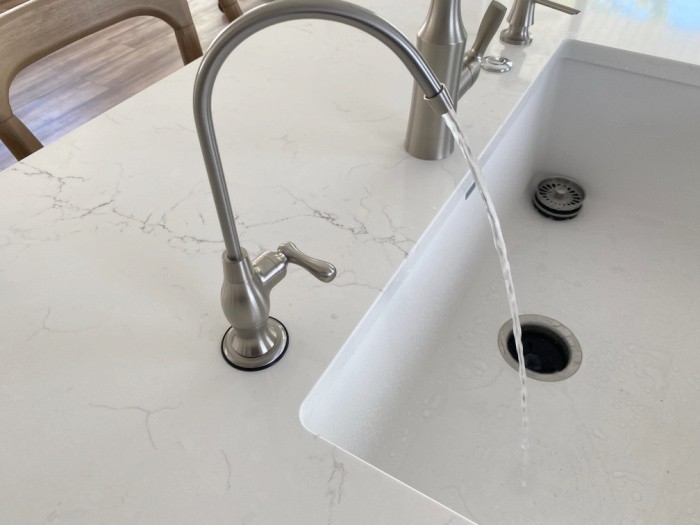
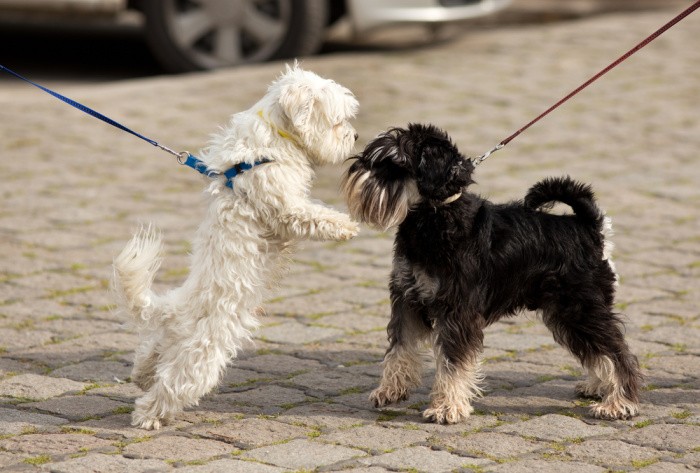
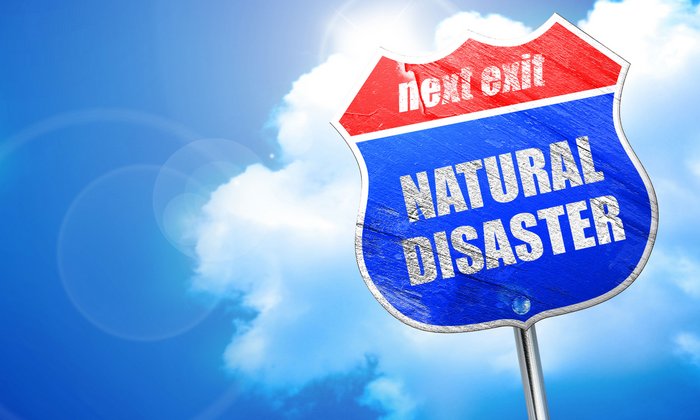
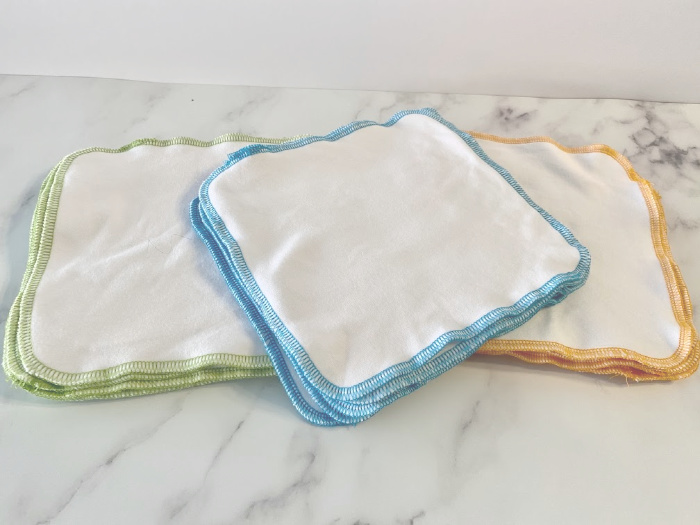
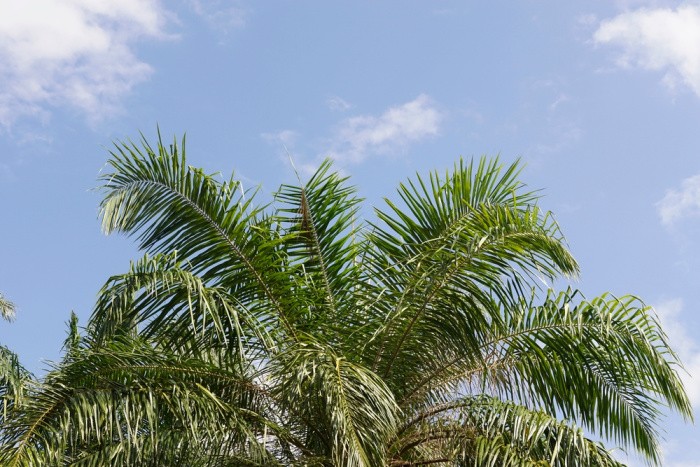














Time spent with them is an investment in their future.
I do so every week at a scheduled time. It started with swim lessons. Now it’s me spending time and teaching him life lessons and just doing stuff. I’ll often grab him on the way to go do things on the farm and make sure to take him places when I can safely accomplish what I need to do with his “help”.
He has a new cap light sitting here. He knows how to run a flashlight though he is forgetful about turning them off cause he’s 4 lol. That why this one is rechargeable.
He caught his first fish this summer and I got to be a part of that. It then cost me one of everything in my tacklebox cause his looked at his sparse one and decided he needed more lol.
We got him a tractor that is a mechanic starter. It comes apart and stuff. I’d already got him a small tool kit though this comes with it own tools. He won’t be looking for blinker fluid or trying to air up the 5th wheel while waiting on AAA for a flat tire. Nope we are raising capable.
https://amzn.to/3R5MJ7b
Been buying the rare unicorn 410 when I see it too. Can’t wait for that day.
My son borrowed the trailer one day. He had a teenage helper. He called me later to tell me that the teen didn’t know how to hook up a trailer. My grandson walked up and stated boldly that “you back up here, lift this, hook that chain and push that thing down”. My son says he sure pays attention to what you do cause he didn’t learn that from me lol.
Yup time is an investment. Anyone can sit n play video games
Hi Matt, oh my gosh, that first fish with your grandson!! Best time ever!! That’s a cool John Deere tractor, he can change the tires, and it comes with a lot of parts! Love it! The grandson’s trailer story, he loves his grandpa and learns from example! Best story EVER! You are so right time is an investment worth more than any other gift. Oh, I forgot the tacklebox, he needed more, life is so good! Linda
Linda, the way Matt spends time with his grandson reminds me of my own grandfather. He was half Blackfoot, orphaned at a young age and raised by a Cherokee family in Oklahoma. He started taking me into the woods with him before I could walk. He taught me situational awareness by, among other things, paying close attention to the behavior of birds, which he called the warners of the woods. He taught me about fishing, hunting and trapping–and so much more. I was one lucky kid to get that kind of education so young and it has stuck with me. No matter where I am or where I go I can’t help but watch my back trail.
Oh, and he gave me my first rifle–a .22 Springfield–when I was 8, so I could participate actively in hunting with him. We ate what we hunted and fished and grew in our garden. I was allowed to roam the local woods alone from a very tender age. I didn’t realize we were “poor” but thank God that we were, for the life lessons learned.
I would add teaching a young one how to swim to the list of necessary survival skills. I couldn’t believe how many men I met in the Navy who couldn’t swim.
HI Ray, you were so lucky for sure to have a grandfather who taught you so many skills. I grew up “poor” but didn’t know I was. It’s actually a blessing to me because I had to learn to cook and bake, sew, mend, quilt (scraps of fabric), can, and garden. My husband and I both grew up poor and didn’t realize it. I don’t know how my single mom fed us to this day. She worked hard and taught me how to work. Material things are fine, but skills are worth so much more. Great comment, Linda
Two more things: first I meant hunting not hinting in my post above. Second, books: here is a great book for young people to read about wilderness survival skills. It’s called Hatchet, by Gary Paulsen. Another great one is the Boy Scout manual–the 2012 edition if you can find it. The newer editions started getting all “woke.”
Hi Ray, I fixed the i to u. No worries. I have the Boy Scout Manual but it’s in my storage unit. Yeah, we still have not started to build. LOL! I’m not sure what year it is, thanks for the heads up. I will look for the book you mention. Thank you, Linda
Hhatchet is a great book. If you can ever find them, Gary Paulsen also wrote a series of books for gradeschoolers called Gary Paulsen’s World of Adventures. Small chapter books with the class reject usually being the one who saves the day in an emergency. Like the bus crashes and the driver dies, but the nerd kid saves everyone until rescue comes… they are great! The rest of the series after Hatchet are goid too. Also, Tom Brown wrote many good survival books, including one specifically for kids that has instructions on how to build a debris shelter to stay warm. Lots of good info… thanks for all you do and share! God bless!
Hi Jan, oh I love hearing about books!! I will check these out for sure!! Thank you for your kind words, Linda
My family called that camping.
Hi Janet, I would call it camping as well. I did a lot of camping growing up. Linda
My mother did not can, she was afraid the pressure canner would blow up on her. She did make jelly from the strawberries we grew. We had a large garden with corn, green beans, peas, strawberries, peppers and tomatoes. We had a pear tree that provided bushels and bushels of pears. Anything you can do with apples, my mother did it with pears. We had a couple of large chest freezers and she froze everything instead of canning. We had veggies from the garden all winter and until the new harvest came in. Sadly, we were too far away for my parents to teach my girls about gardening and freezing the harvest. I have a fully shaded backyard, which is nice in some ways, but I can’t have a garden. I also want to learn to can. My daughter was majoring in Family & Consumer Science (called home ec in my day) and she learned how to can in one of her classes. I want her to come teach me how to can, we just haven’t found the time to do it yet.
Hi Topaz, oh I would love to have pear trees!! I love hearing your daughter was majoring in Family & Consumer Science. What a blessing she learned to can. Hopefully, you can get together soon. Linda
I can’t take the credit, but my daughter in law is homeschooling her three boys, my son teaches them camping and firearms, my daughter encourages the creative side, and if it can be made with wood, my son in law does it. The boys watch and learn from everything they see.
Hi Chris, oh this is so awesome to hear! I love hearing about families working together to learn by example. Life is good! Linda
Everything I know about cooking and canning came from my grandmothers and a great-grandmother. They were all so talented in the kitchen and could take a little of nothing and make a feast out of it. I also had a grandfather who trapped and sold the pelts to make extra money. I’ve eaten some meat that most people turn their nose up at, but if it’s cooked correctly it’s delicious.
Hi Paula, I love hearing you learned so much from your grandparents! What a blessing! Hunters know how to cook the meat they take home. Linda
Oh did this article bring back a lot of memories. My dad took me fishing when I was a little girl. Anything I could do with my dad I loved. Gardening, fishing whatever. He had a workshop where he made model plains and he showed me how to make them. I guess I was a tom boy because the only think girlish that I did was to wear dresses. In fact I could say I was the first female to join the Boy Scouts because my dad was the scout leader for my brothers group. I did everything the boys did. Of course my dad made sure that the boys not try anything but I had a ball.
My mom was more aloof when I tried to get her to teach me to cook she told me that the Kitchen was her domain and no one bothered her there. The only thing she taught me to make was Potato salad and Sour beans. But the years I worked on the Deaf Ranch I learned to make a mean chilli. It was so hot not even the Mexicans that were there wanted to eat it.
I owe you some recipes so I will send them to you in a email
Hi Jackie, oh the wonderful memories with your dad and the Boy Scouts!! It’s too bad your mom thought her Kitchen was her domain, so sad. But look at you NOW! I know you are a very good cook! Love it, Linda